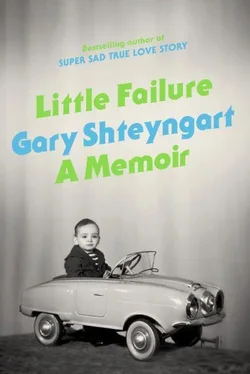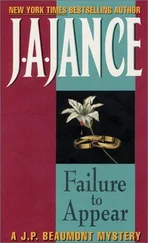But I know I can’t say it. I know this is no longer my city and these are not my people. But is it still my language? I close my eyes and begin to remember the words of my father’s letters.
Good day, dear little son .
A trickle of breath.
How are you doing? What are you doing? Are you going to climb the “Bear” Mountain and how many gloves have you found in the sea? Have you learned to swim yet and if so are you planning to swim away to Turkey?
More breathing, shallow, but familiar. I whisper the words to myself, the way I used to whisper to myself in Russian in the first grade of Hebrew school, the American children thinking me a lunatic.
One day in Gurzuf, a submarine named Arzum sailed in from Turkey. Two commandos wearing Aqua-Lungs departed the boat and swam for the shore. Unbeknownst to our border guards they headed for the mountain, for the forest. In the morning the Soviet border guards saw fresh trails on the beach of the “Pushkin” sanatorium and called on the border guard, who summoned their search dog. She quickly found the two hidden Aqua-Lungs under the rocks. It was clear — an enemy. “Search!” the border guards commanded the dog, and she immediately ran in the direction of the International Pioneers Camp. Story to be continued — at home .
The loud but happy turn of the wheels beneath us. We are moving again! We are coming into the station, we are coming into Moscow Square. I unclench my worried fists, open my eyes, and stare into the angelic face of the five-year-old girl with the paint smeared on her cheeks and forehead.
Little son, there are only a few days left until we meet again, do not be lonely, behave yourself, listen to your mother and your aunt Tanya. Kisses, Papa .
The doors swoosh open as if they’ve been pulled apart by giants. “Moskovskaya,” a recorded voice announces the station. Am I home?

“To Citizen Shteyngart P., NOTIFICATION, Your husband Sergeant Shteyngart Isaac Semyonovich, fighting for the Socialist Motherland, true to his military oath, evincing heroism and courage, was killed 18 February 1943.”
We are outside the tiny village of Feklistovo, where, in 1943, the German line extended southwest of Leningrad. The Red Army attempted to break through the German encirclement and end the siege of the city on several occasions. Here, in one such attempt, my grandfather Isaac, my father’s father, an artillerist, was killed in battle.
Twenty-six million died on the Russian side in World War II, nearly 15 percent of the population. It is not an exaggeration to say the ground trod by my sneakers was once steeped in blood. It is not an exaggeration to say that those of us who are Russian, or Russian American, or Russian anything, are the offspring of these battles.
Outside the unremarkable soldiers’ mass grave, squared away between some fields and huts, there’s a local gentleman in a straw hat selling flowers. “He’s going to rip him off,” my mother says of the straw-hatted man, as my father ventures out of the car with about four dollars’ worth of Russian currency. When my father returns with a modest bunch of red roses, she tells him: “Later, he’ll come and resell the flowers you put on the grave.”
We are facing a monument of the Soviet socialist realism school, a soldier with a rifle slung over his chest, a silver helmet lying by his feet, surrounded by overgrown weeds. TO THE SOVIET WARRIORS WHO DIED IN BATTLES FOR THEIR MOTHERLAND 1941–44.
It is a sunny day, the first beautiful day of our trip. There’s the smell of frying sausages from the nearby country houses. Two grandmothers are sitting on a bench by the mass grave. “I come from Leningrad,” one of the grandmothers says. She’s in full babushka regalia, black raincoat and green kerchief wrapped around her head. “I have a dacha here.”
“I live here,” says Babushka Two.
“In 1943, my father died here,” my father says.
The grannies are silent for a moment.
“ Da ,” they finally say.
“In February 1943,” my mother says. The fact that she has memorized the exact month of her husband’s father’s death is touching. I will memorize it, too.
“Maybe we’ll even find his name, son,” my father says as we begin to scour the overwhelming lists of the dead inscribed on the pink and white marble plates flanking the silver soldier statue on all sides. Somewhere amidst these green pastures, the hillocks covered with violets and daisies, my grandfather’s bones are buried.
“At least it’s a quiet place for a grave,” my father says.
“A good, quiet place,” my mother says, as if slotting herself into a Carver story. “The air is good.”
My father speaks: “Goodbye, goodbye, Father. I probably won’t come back again until my death. Forgive me. For everything.”
I laugh nervously. “You’re not guilty,” I say.
“I have a sense of guilt,” my father says. “That he didn’t live enough. In ’43 he was twenty-nine, maybe thirty. He didn’t see anything. What was it for? He left a little son, a wife.” He shakes his head.
“Oh, son,” he says to me, “why didn’t me and my mother come here earlier? I don’t know why she didn’t care about these things. We could have been here a hundred times. Of course, she was upset.”
What I notice is that he has stopped calling me “Little Son.” Now I am just his son. Now I stand at exactly the same height as him and our relationship is clear.
“Son, please read the prayer for me.” From his Velcro money pouch, my father pulls out a pamphlet with Jewish prayers to be said at a grave site. “Where’s the main prayer?” he asks. “Baruch …?”
As I write this, I’m looking at a photograph of my father in his early seventies holding an umbrella in the forecourt of Versailles, his right foot raised off the ground as if he is Gene Kelly, one of my Stuyvesant sweaters billowing out above his khaki pants. He is smiling at my mother and her camera, smiling fully, with teeth, in the American manner. “Singer in the rain,” my mother has written on a Post-it note in her careful English script. She has stuck the note above my father’s dancing figure.
The day after we visit my grandfather’s grave, we will go to the Great Choral Synagogue of St. Petersburg. I will ask my father if he ever visited the temple during his Soviet days. “Yes, five or six times,” he will say. “The first time I came, my aunt who later killed herself, Aunt Sima, she had her wedding here. I was about seventeen years old. And while that ceremony was taking place a girl entered. I remembered her my whole life. She wasn’t a beauty. She was dark, dark. A good Jewish face. And some kind of strange, almost glowing dark eyes. My whole life I have felt those eyes looking at me.”
“Lord, who should sojourn in thy tabernacle?” I read from Psalms 15:1 in English. “Who shall dwell upon thy holy mountain? He that walketh uprightly and walketh righteously and speaks with truth in his heart … He that does those things shall never be moved.”
I begin the mourner’s Kaddish. “ Yitgaddal veyitqaddash shmeh rabba ,” I say in Aramaic. My father bows slightly to God’s will with each cadence.
 I say.
I say.
 I chant.
I chant.
I can read the prayer, but I cannot understand it. The words coming out of my mouth are gibberish to me. And they can only be gibberish to my father’s ear as well.
Читать дальше


 I say.
I say. I chant.
I chant.










